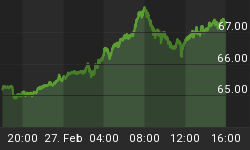US growth, such as it is, has lately been driven by a handful of hot sectors. Car sales have set records, high-end real estate is generally way up, and federal spending - based on last year's jump in the national debt - is booming.
But now the private sector part of that equation is shifting into low gear. Cars in particular:
Economy Will Miss That New-Car Smell
(Wall Street Journal) - The annual pace of light-vehicle sales fell to a seasonally adjusted 17.2 million in the first quarter from 18 million. That the decline has come despite generous incentives from car companies and still-low gasoline prices suggests that sales are past their peak.
The upshot is that the deferred purchases that helped bolster business coming out of the recession have been made, and it will be up to replacement demand and a slowly growing population of registered drivers to fuel auto sales. If car makers are lucky, sales might stay on their recent level. If they aren't—and the recent drop in used-car prices raises that prospect—the trend could be lower. In either case, autos might count as a negative for consumer spending and the industry, a big driver of economic growth, could be an outright drag on the economy for the first time since 2009.
GM Joins Ford Worrying About Declining Used-Car Prices
(Bloomberg) - General Motors Co. said a glut of used cars will return to market after their leases expire and drag on its finance unit this year, following similar warnings by peer Ford Motor Co. and lenders such as Ally Financial Inc.
The prices of used cars in GM Financial's leasing portfolio will decline about 7 percent this year, GM Chief Financial Officer Chuck Stevens said on a conference call with analysts Thursday. The value of used GM vehicles have depreciated faster than expected in the first quarter, particularly with crossovers, and prices will fall as much as 3 percent next year.
Ford touched off concerns about declining used car prices late last year, when the automaker cut its lending unit's profit forecast by $300 million. The National Automobile Dealers Association's used vehicle price index plunged in February by the most since November 2008, spurring concerns about the fallout for automakers, lenders including Ally Financial and car-rental companies such as Hertz Global Holdings Inc.
Housing may be about to go the same way. Mortgage rates are rising, which means the real cost of owning a home — already up dramatically in the past few years — is about to jump again.

When rising prices meet soaring supply, carnage frequently ensues. Miami, as usual, is a case in point:
Miami Condo Bust Much Worse than Industry Numbers Show
(Wolf Street) - Condo sales in Miami-Dade County have plunged. Condos on the market have surged. Supply has hit 14 months. Developers are sitting on completed units they can't sell, and months' supply in their projects has reached several years.
Department stores, meanwhile, have begun their long-awaited die-off. From yesterday's Washington Post:
The troubles at the American mall are coming to a boil
A fresh round of distress signals sounded in the retail industry this week, as another big-name chain announced hundreds of new store closings and still others moved aggressively to recalibrate their businesses for the online shopping stampede.
Payless ShoeSource filed for Chapter 11 bankruptcy and outlined plans to immediately close nearly 400 of its 4,400 stores globally. Ralph Lauren is shuttering its flagship Polo store, a foot-traffic magnet on tony Fifth Avenue in Manhattan, the latest step in a massive cost-cutting effort. Big-box office supplies stalwart Staples is reportedly considering putting itself up for sale.
The shakeout among retailers has been building for years and is now arriving in full force.
The retrenchment comes as shoppers move online and begin to embrace smaller, niche merchants. As a result, many major chains find themselves victims of a problem of their own making, having elbowed their way into so many locations that the United States has more retail square footage per capita than any other nation. To use the industry vernacular, they are simply "overstored."
Many have begun cutting back, sending ripples through the economy. The wave of store closures by Macy's and Sears alone will empty 28 million square feet of retail real estate, according to an analysis by research firm CoStar. Often those vacancies are slow to fill, leaving shopping centers less hospitable to the chains that remain, feeding even more departures and job losses.
The malaise has spread even as the economy overall grows stronger and the stock market marches higher. Just this week, Urban Outfitters reported that in the current quarter to-date, its comparable sales are "mid single-digit negative." The women's clothing chain Bebe said in a regulatory filing Wednesday that it is closing 21 locations. Last week, yoga clothier Lululemon chief executive Laurent Potdevin acknowledged that the chain had seen "a slow start to 2017."
These are some serious headwinds, and it's not clear what offsets them. Could be that the only source of future growth is the government, which means the Fed will soon have to reverse course, cutting interest rates and buying up even more of what used to be known as the free market.

















